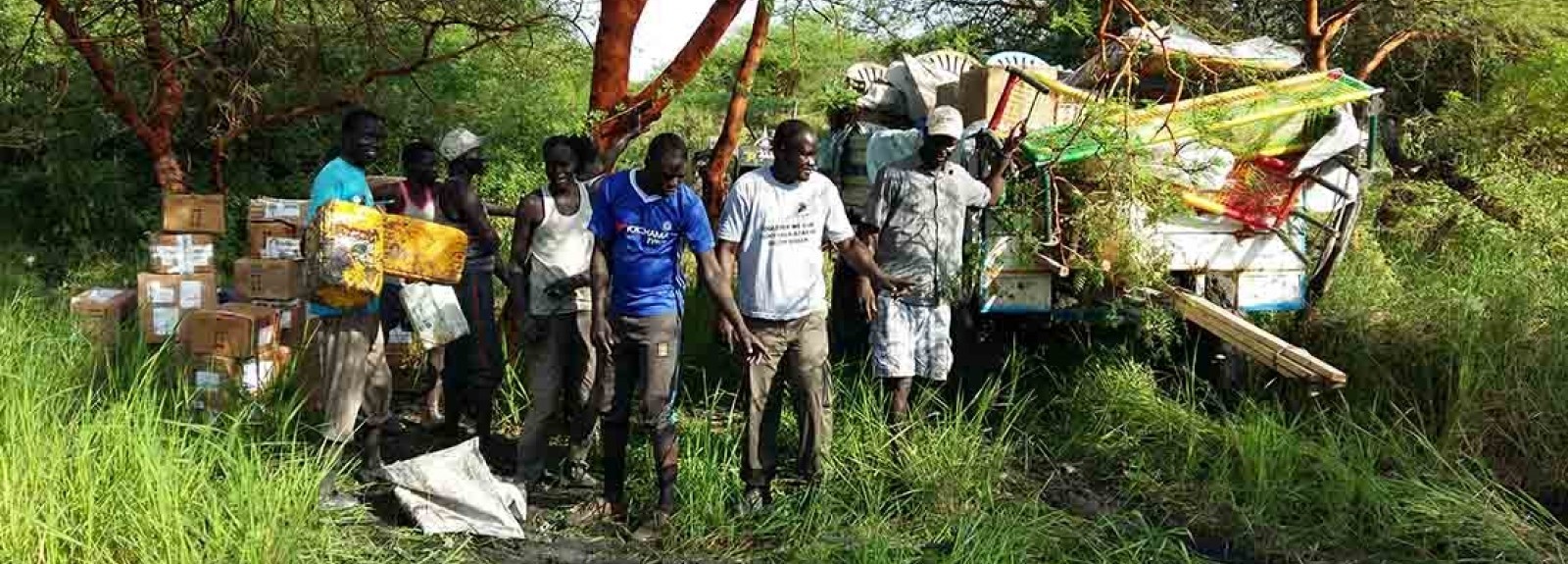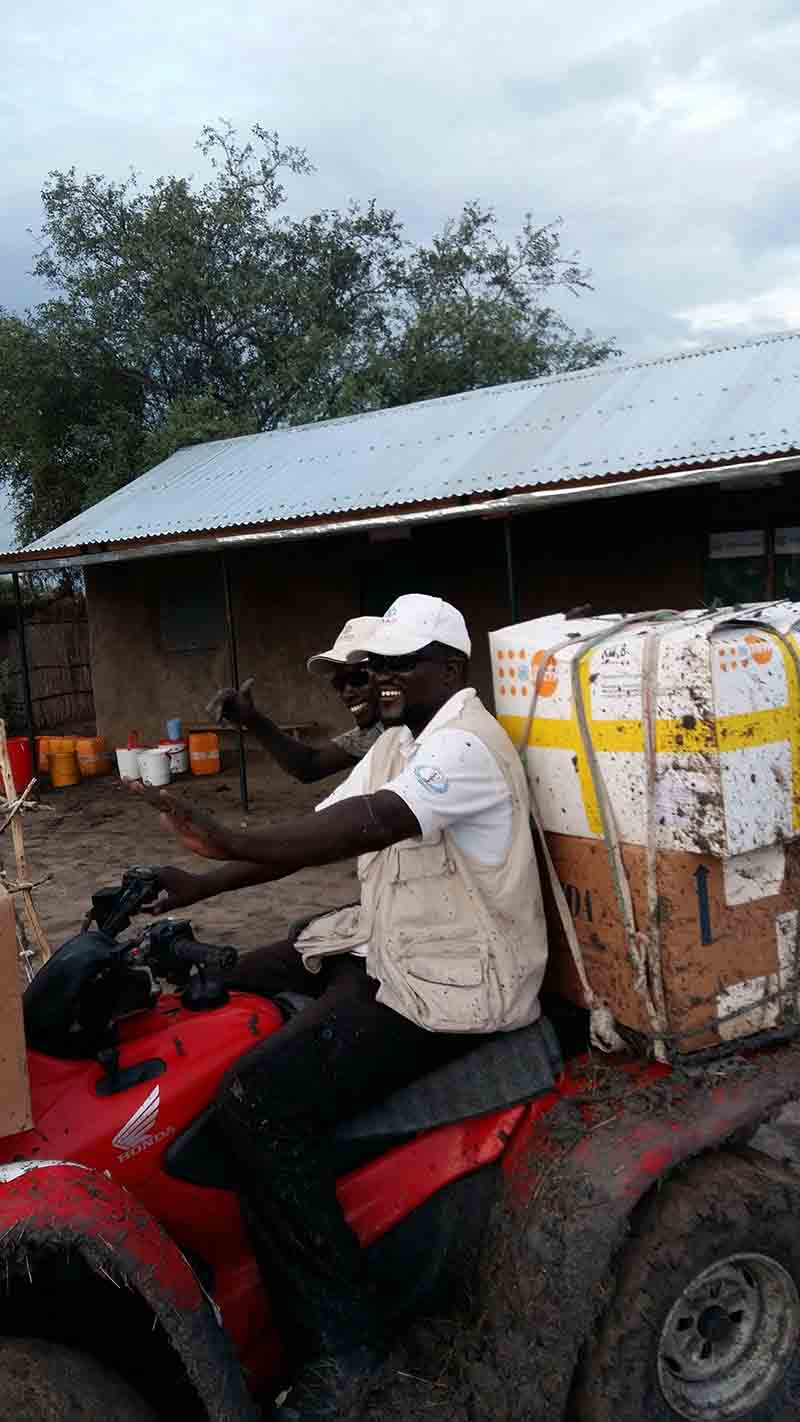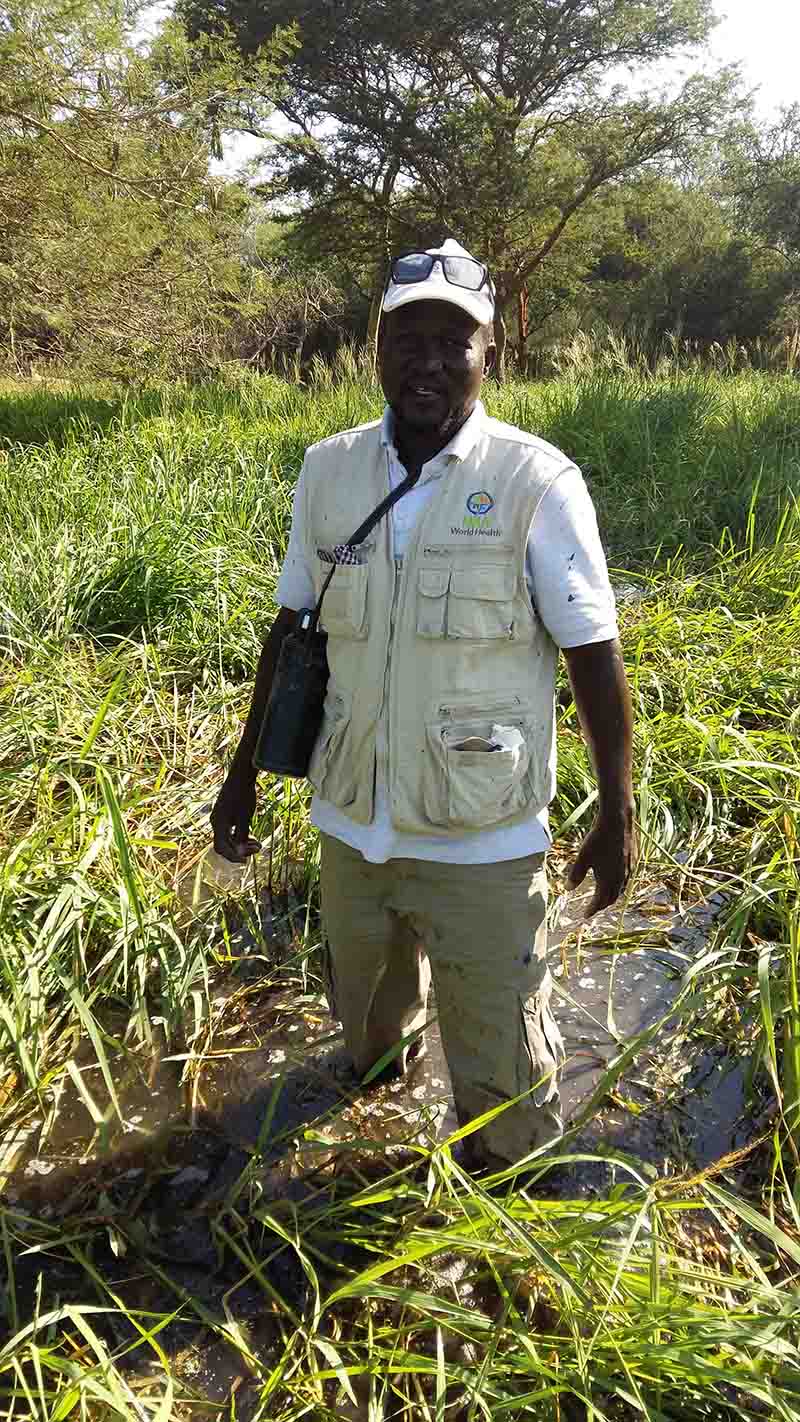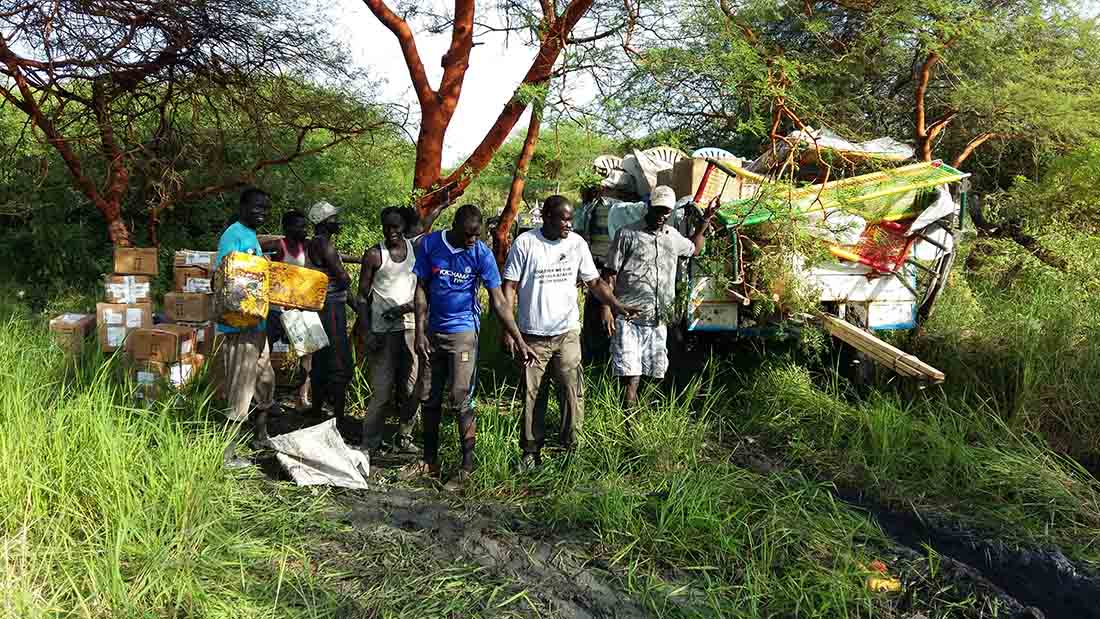
The call for help was urgent. More than 5,000 internally displaced people in South Sudan, the world’s youngest nation, were suffering. What they had and needed in Akurwai could be summed up in four words: very little and nearly everything. Humanitarian aid groups wanted to help but travel conditions and supply-chain logistics stopped most of them.
But not IMA World Health. With funding from the U.S. Agency for International Development’s Office of Foreign Disaster Assistance, IMA has been able to provide emergency health services in South Sudan since 2014. Often, the journey to provide these vital services to some of the most vulnerable people in the world is filled with challenges.
During the spring of 2018, a five-member team set out to transport desperately-needed supplies and medicine to a group of people who had fled violence and settled in Akurwa and Aderi in Kak Payam. The trip, led by IMA Medical Supervisor Dr. Oleny Amum and field coordinator Lugi Adwok, had numerous hurdles. Parts of the area had no roads and where there were roads, they were impassable because of the rainy season. The team had encountered this problem before and knew a tractor was their only option. But even its massive wheels were no match for the muddy terrain.
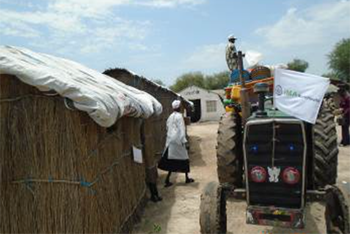
At one point, the tractor was mired so deeply in mud that members of the team had to leave it and stay in local villages, waiting for daylight to dig it out. A 3-hour trip during the dry season turned into a 30-hour journey.
“The team couldn’t turn back. We knew the people needed us. They lacked everything, especially health care,” said Duncan Ochol, IMA’s director of programs for South Sudan. “We had to keep going.”
Other than fish and some water from a nearby river, the families in the area had little food and few opportunities to earn income. They had already endured unsettled lives before arriving in Manyo County in the Greater Upper Nile state. Violence had forced them to move to the Magenes area but that provided little refuge. Insecurity was a problem, as was escalating commodity prices and crops destroyed by nomadic livestock. Additional woe was no health care, no educational opportunities and little drinking water.
Akurwai and Aderi did offer much better circumstances.
Humanitarian organizations assessed the situation and began planning a joint mission. There would be health services, nutritional supplements, tools for agriculture and a focus on water, sanitation and hygiene as well as addressing violence against women and girls. The World Health Organization would provide interagency emergency health kits, UNICEF would be responsible for nutrition supplements, WASH materials and RH/EPI kits. The Food and Agriculture Organization of the United Nations would be responsible for tools. The logistics cluster would organize transportation to bring the supplies.
But the rainy season provided a huge hurdle and supplies weren’t available. The mission was canceled, but “IMA opted to go ahead and set up the clinic and provide the much-needed health services using the resources that we had available,” Duncan said.
With materials staged in Aburoc, IMA was able to load a trailer with medical needs. The tractor was used with the plan to begin medical services as soon as the team arrived in the region with the mobile clinic to follow.
And the supply preparations and past experience moving during the rainy season paid off.
The clinical officers and nurses, with the help of leaders in the community, set up and immediately began treating communicable diseases, including malaria, acute respiratory infections and diarrhea, all things usually associated with displaced people living in crowded areas with inadequate water and poor sanitation and access to health care.
Since then, IMA has set up the mobile clinic. Ochol said the organization’s experience in South Sudan is the key.
IMA oversees multiple clinics, each made up of four tents for consultations, antenatal care and delivery, pharmacy/dispensing and a nursing station for procedures such as injections and immunization services. The mobile clinics are also equipped with basic amenities for waste disposal, clean water and security. From September 1, 2017, through June 30, 2018, clinic staff conducted a total of 43,587 outpatient consultations, diagnosing and treating thousands of cases of malaria, acute respiratory infection and diarrhea. Clinic health workers also conduct screenings for malnutrition and community health education on topics like water and sanitation, the use of bed nets and the importance of immunizations.
“We are used to working in an ever-changing environment where vulnerable populations constantly relocate because of insecurity and seasonal flooding,” he said. “With funding from the Office of U.S. Foreign Disaster Assistance, we can provide emergency and primary health care services to these populations wherever they go.”
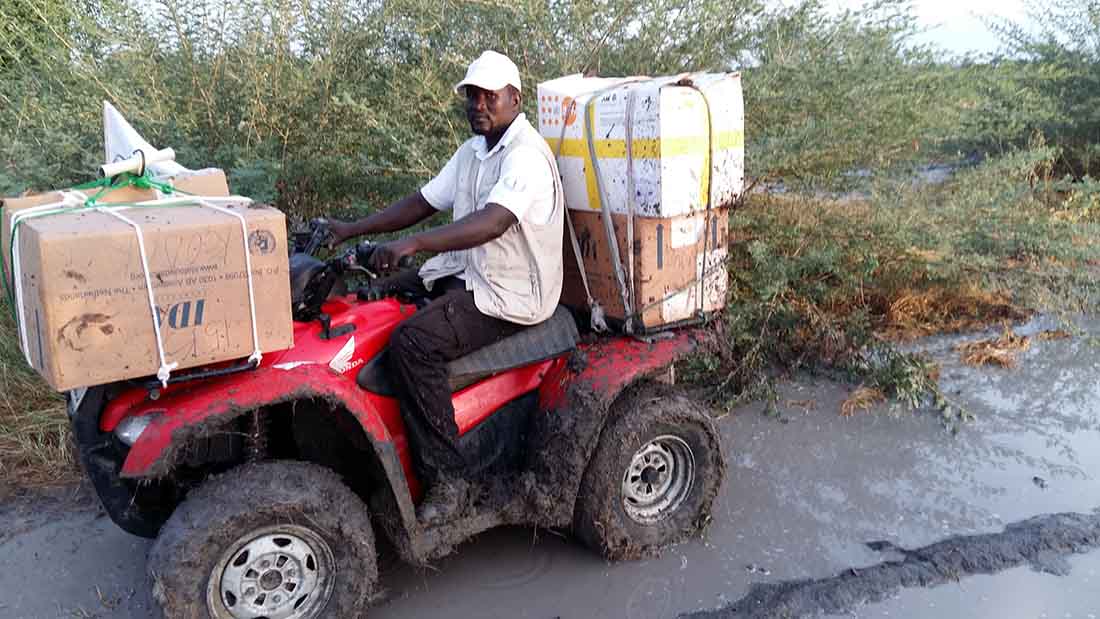

Founded in 1960, IMA World Health is a global, faith-based nonprofit that works with communities to overcome their public health challenges.
WRITE US
IMA World Health
1730 M Street, NW, Suite 1100
Washington, DC 20036
Get directions
EMAIL US
@email
CALL US
202-888-6200


